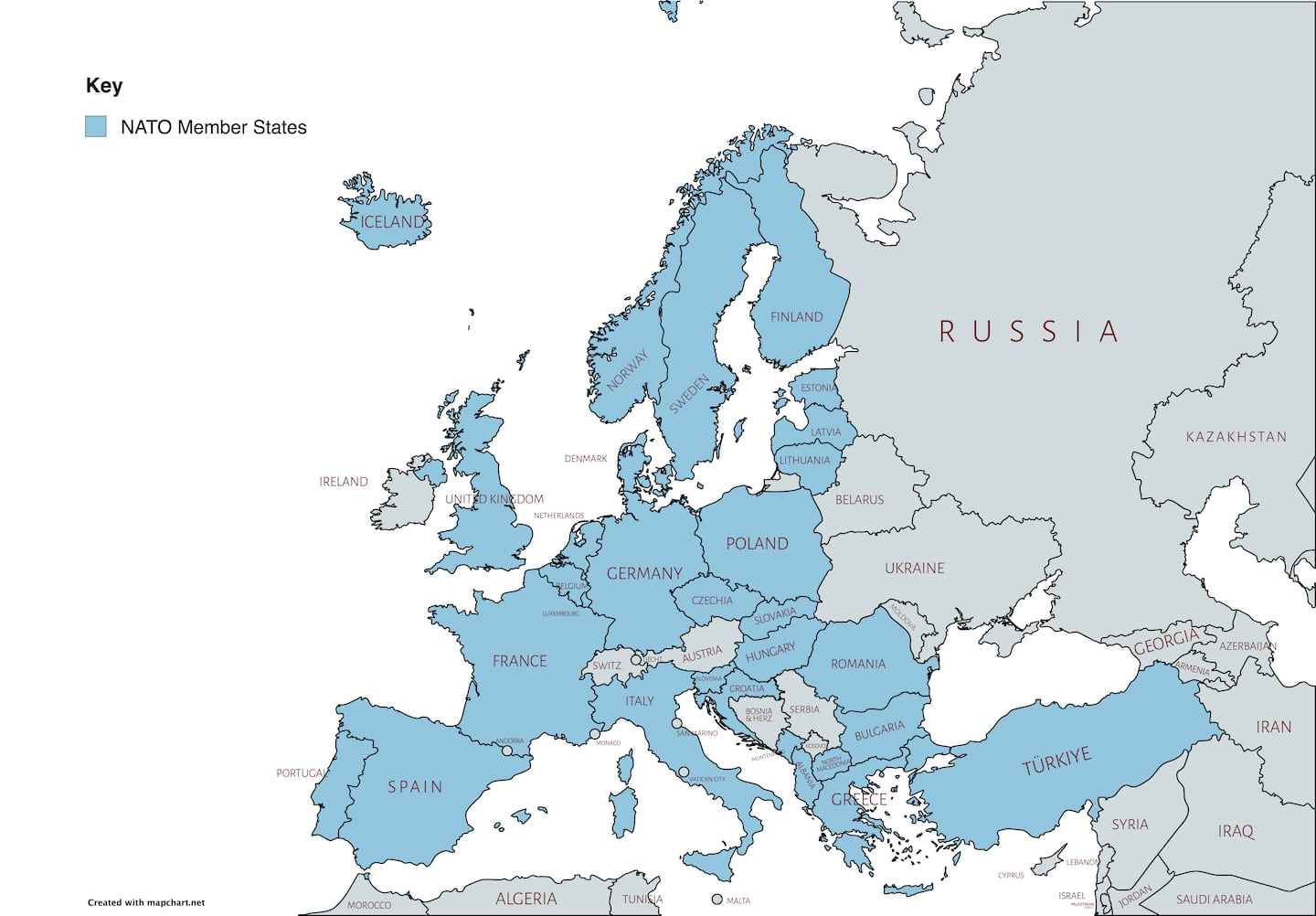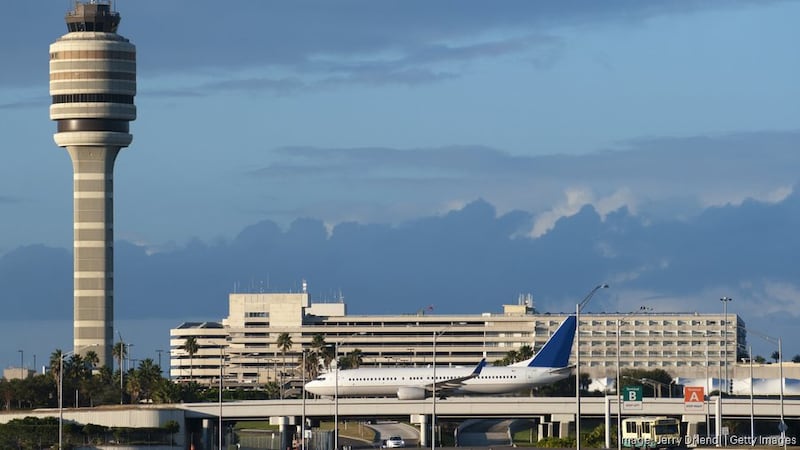After several Russian drones that entered Polish airspace were shot down by the Polish military on Wednesday, Polish Prime Minister Donald Tusk has made a formal request to invoke Article 4 of the North Atlantic Treaty.
▶ LISTEN TO ORLANDO’S MORNING NEWS EXPRESS PODCAST ON WDBO
Tusk is set to speak with key NATO officials today, holding separate conversations with Ukrainian President Volodymyr Zelenskyy, French President Emmanuel Macron, NATO Secretary General Mark Rutte, Italian Prime Minister Giorgia Meloni, and UK Prime Minister Keir Starmer.
KEY POINTS
- NATO comprised of a series of allied countries after WWII to resist Soviet/Russian influence
- Poland invoking Article 4 of pact, calling for urgent discussion of situation. One step before Article 5, which calls for military action
- Article 5 has not been invoked since the September 11th attacks
- Poland PM to speak with NATO members Wednesday
This comes after months of continued airspace violations on the part of Russia, and sheds further light on the tensions sprouting along NATO’s eastern border.
Previous violations saw Russian aircraft entering Lithuanian airspace in July 2025, prompting officials in Vilnius to request NATO defense assistance. Remnants of Russian drones were also found in Romania and Latvia.
NATO’s eastern flank has oft been a point of concern throughout history, a border that once earned the colloquial and imposing term “the Iron Curtain.” The “Curtain” served as a proverbial demarcation that separated the Eastern Bloc from the Western Bloc during the Cold War. The collapse of the Soviet Union in 1991 shifted these borders a bit, especially following Czechia, Hungary, and Poland’s admission to NATO in 1999.
Other former Eastern Bloc states would follow suit in 2004, with the Baltic states (Estonia, Latvia, and Lithuania), Romania, Slovenia, Slovakia, and Bulgaria entering NATO’s ranks. This invisible boundary marks an important line, one that encroaches upon the territories of Western Europe and should that line be threatened, it could have monumental consequences.
But what is the North Atlantic Treaty Organization, and why is Poland’s request to invoke the alliance’s Article 4 so significant?
History of NATO and Its Articles
The North Atlantic Treaty Organization (also known as NATO or the North Atlantic Alliance) was created in 1949 following the end of World War II. The initial draft of the treaty, signed in Washington D.C. on 4 April 1949, served to “safeguard the freedom, common heritage and civilisation of [the member states’] peoples” and was “founded on the principles of democracy, individual liberty and the rule of law.” It also explicitly sought to “promote stability and well-being in the North Atlantic area.”
The original signees included the United States and Canada, as well as Belgium, Denmark, France, Iceland, Italy, Luxembourg, the Netherlands, Norway, Portugal, and the United Kingdom.
This mission became essential during the years of the Cold War, when its primary objective was to refute the growing influence and threat of the Soviet Union and its satellite states, all of whom formed NATO’s counter-alliance, the Warsaw Pact, in 1955.
Aside from this mission statement, the NATO treaty are its numerous Articles, which outline the ways in which NATO would respond to any threat to the aforementioned principles upon which it was founded. These threats encompass any attack on a NATO member state’s sovereignty, liberties, freedoms, et cetera and after determining the threat’s severity, NATO can choose in what way to respond.
Articles 1 through 5 detail these types of responses, ranging from diplomatic discussions to outright war. What follows are layman’s breakdowns of each of these five key articles, including Article 4, which Poland has requested to invoke.
Articles of the North Atlantic Treaty
Article 1: The settling of an international dispute by way of “peaceful means,” or the “refrain...from the threat or use of force in any manner.” This is the most diplomatic throughway, and is not considered an article that the organization can “invoke.” Rather, this is the foundation of NATO’s mission, and is considered a permanent and ongoing approach.
Article 2: The “strengthening [of the member states’] free institutions” through shared democratic values, economic collaboration, and stable international environments. Like Article 1, this, too, is an ongoing and permanent approach, reflected by NATO member states’ continued collaboration.
Article 3: The article that highlights the principle of resilience, which NATO outlines is “both a national responsibility and a collective commitment.” Essentially, all countries must “separately and jointly ... maintain and develop their individual and collective capacity to resist armed attack,” so that should NATO encounter any sort of threat, all countries will be separately prepared, thereby ensuring the alliance as a whole is, as well.
Article 4: Should a country have any sort of concern regarding the security of any member state, a meeting can be called. Here, all decisions are made via consensus, and “gives members the opportunity to voice opinions and official positions,” as well as “gives NATO an active role in preventative diplomacy by providing the means to help avoid military conflict.”
This is the article Poland’s Prime Minister Donald Tusk means to invoke and if successful, this would mark the eighth invocation in NATO’s history.
Two previous instances have also involved a Russia-Ukraine conflict; in March 2014, Poland invoked Article 4 following Russian aggression in neighboring Ukraine, and again in February 2022, when Bulgaria, Czechia, Estonia, Latvia, Lithuania, Romania, and Slovakia joined Poland in requesting to hold a conference in response to Russia’s invasion of Ukraine.
Article 5: The most severe response: “an armed attack against one or more [NATO states] in Europe or North America shall be considered an attack against them all.” In such an event, the member states would take “such action as it deems necessary, including the use of armed force.”
The only time in NATO’s history that this article has been invoked was following the September 11 attacks in 2001. This invocation was seen as an act of solidarity with the United States, as well as a condemnation on the terrorist attacks carried out in New York City.
Poland’s invoking of Article 4 could, according to NATO, “take many forms.” These range from an “exchange of information and opinions” to “reaching a consensus on policies to be adopted or actions to be taken.” They can be expedited, as all member states have permanent delegations at the NATO Headquarters in Brussels, Belgium. It is not necessarily a direct route to aggression or war, rather, it “can be an invitation for member countries to ... request for NATO support.”
Click here to download our free news, weather and traffic app. And click here to subscribe to our daily 3 Big Things newsletter.
©2025 Cox Media Group














